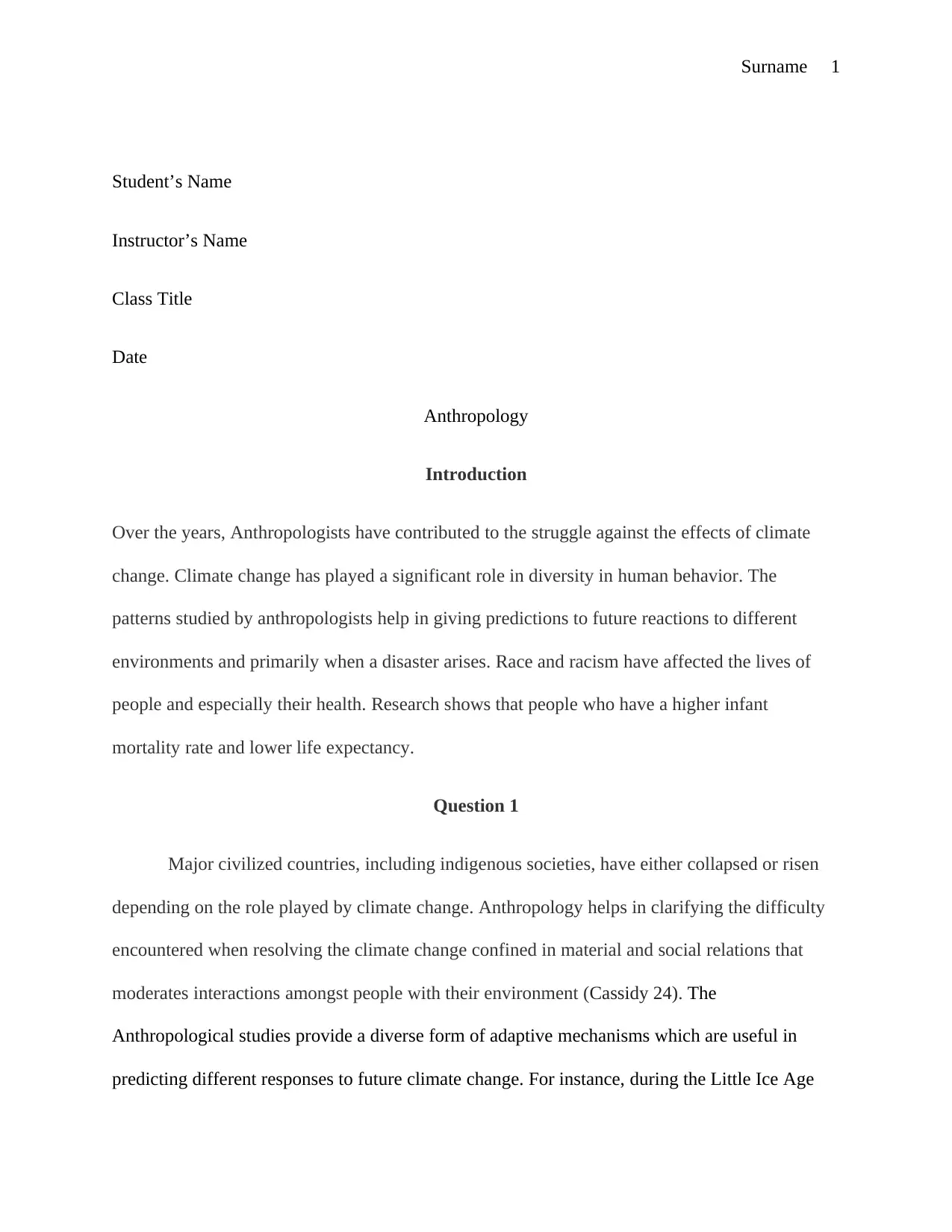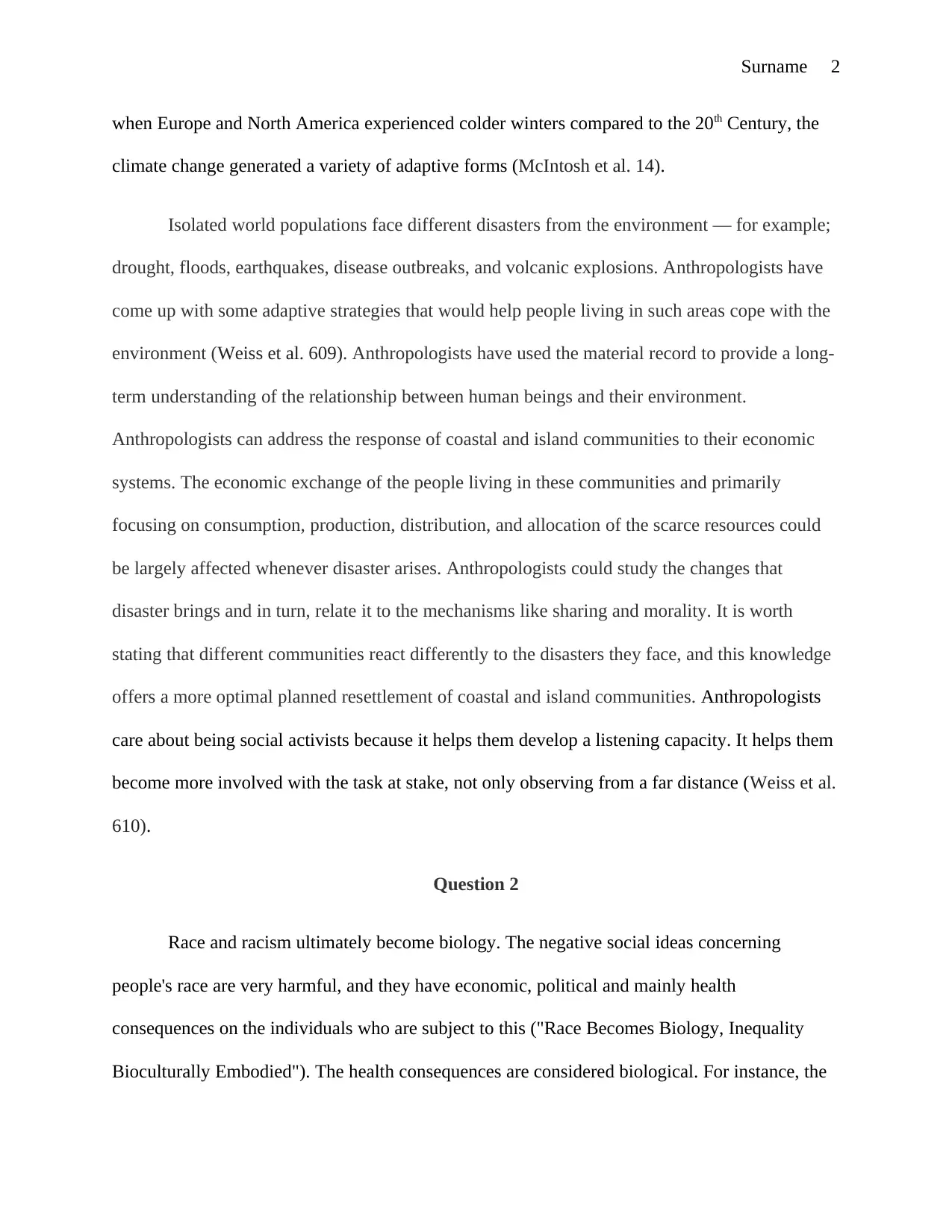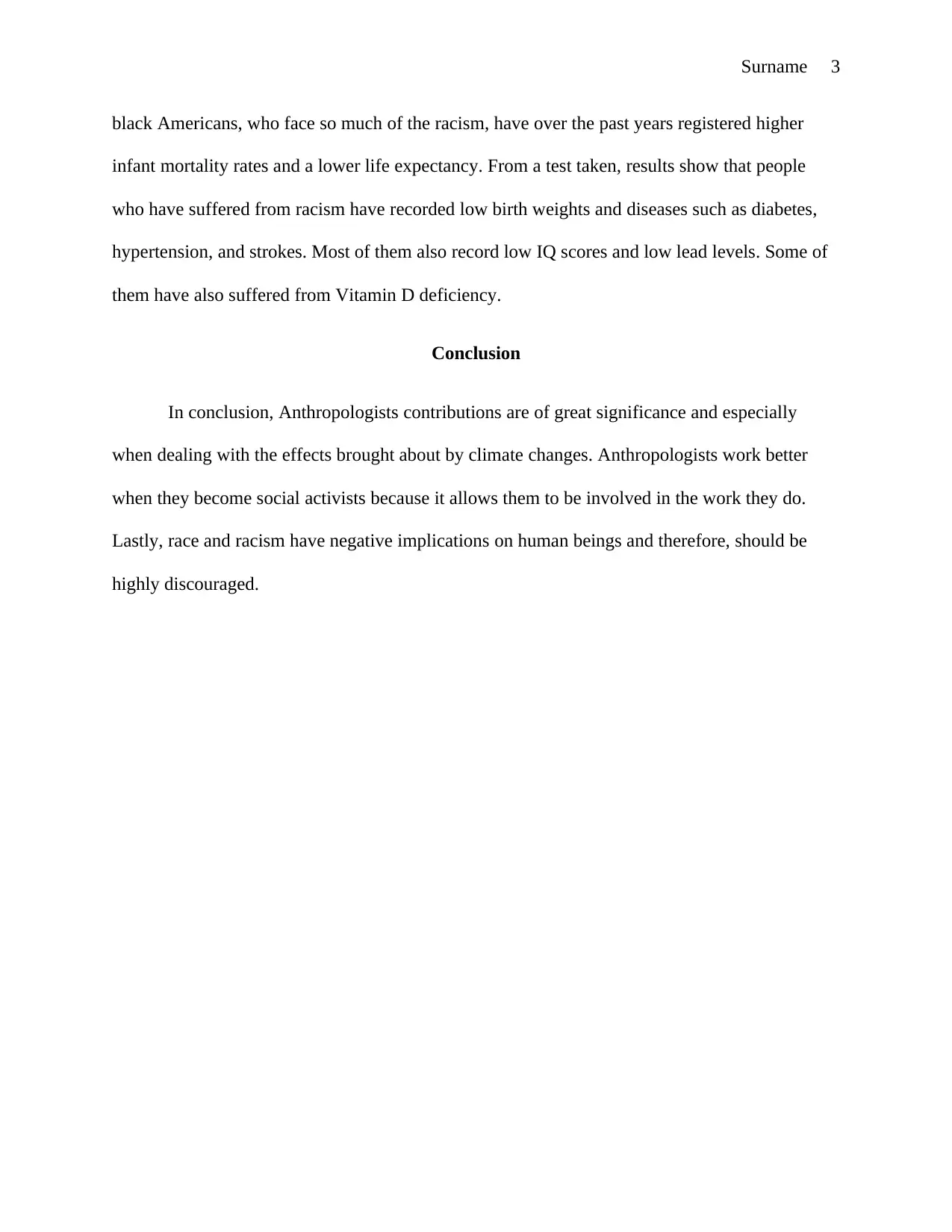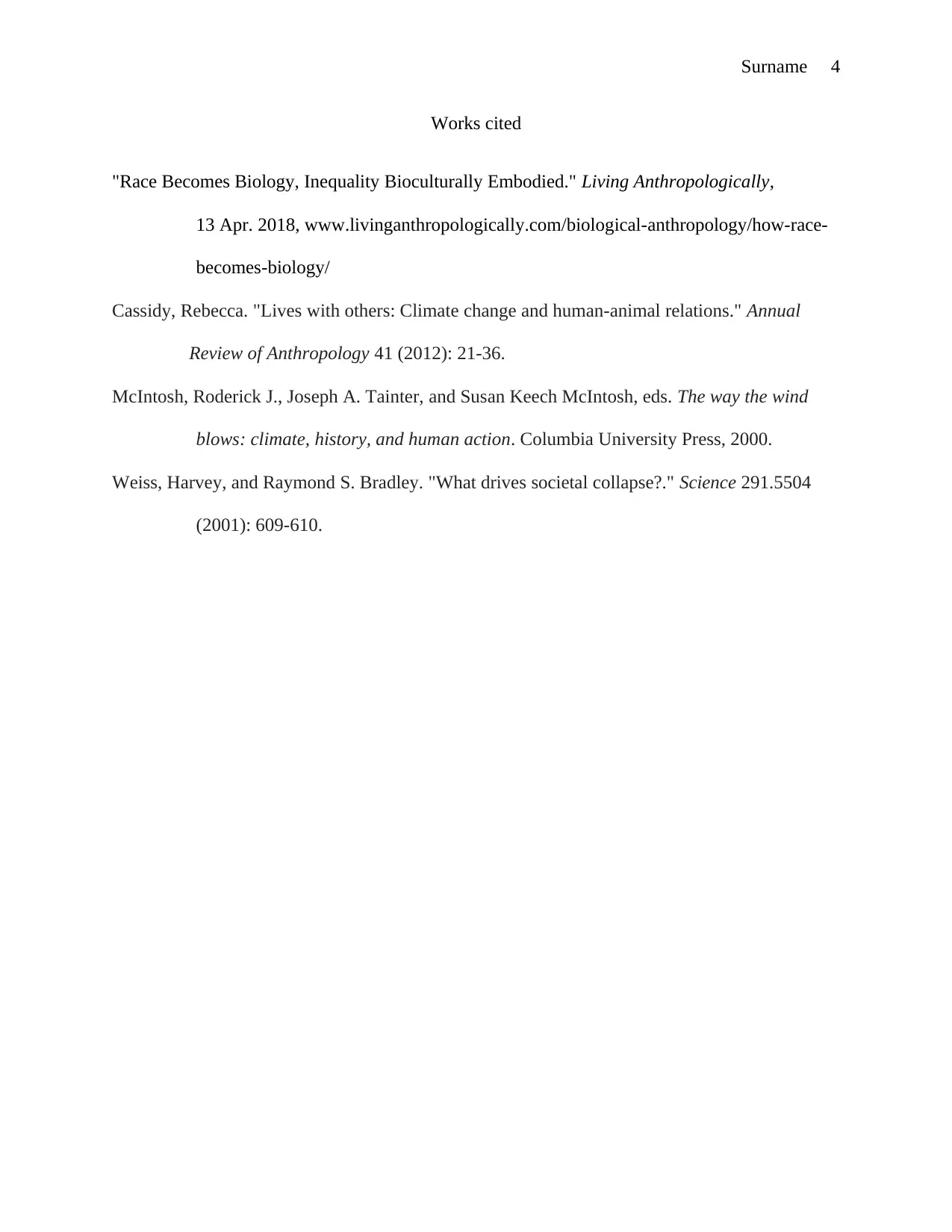Analysis of Climate Change, Racism, and Health in Anthropology (Essay)
VerifiedAdded on 2023/01/11
|4
|746
|73
Essay
AI Summary
This essay explores the contributions of anthropology to understanding and addressing climate change and its effects, including the importance of adaptation strategies for communities facing environmental disasters. It also examines the impact of race and racism on health outcomes, highlighting the biological consequences of social inequalities, such as higher infant mortality rates and lower life expectancies among affected populations. The essay emphasizes the role of anthropologists as social activists, advocating for optimal resettlement of coastal communities and promoting awareness of the negative implications of racism. The analysis draws on research and case studies to illustrate the complex interplay between environmental challenges, social structures, and human health, providing insights into the need for comprehensive solutions.
1 out of 4






![[object Object]](/_next/static/media/star-bottom.7253800d.svg)